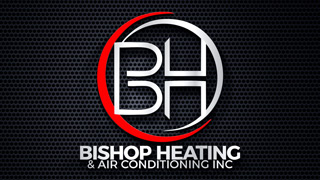
We can all benefit from saving money here and there. One of the simplest ways to do so is by improving energy efficiency in your home. Upgrading your HVAC system or putting in a smart thermostat, for example, provides more control over your HVAC system, resulting in a more energy-efficient home and lower monthly energy bills.
Continue below to learn about 4 ways you can make energy-efficient home enhancements.
1. Use Smart Home Products Like a Smart Thermostat
If you still use an older thermostat and access it manually, consider taking a step toward the future by installing a smart, or Wi-Fi, thermostat – which includes several features to improve your home's energy efficiency.
The functionality homeowners appreciate the most is having the ability to adjust their smart thermostats from anywhere they want with their smartphone or other smart device. As an example, if you forget to change your thermostat before leaving for vacation, you can just use your smartphone and make the necessary adjustment.
Like a programmable thermostat, a smart thermostat enables you to schedule your home’s temperature determined by the time of day and day of the week so you’re not heating or cooling an empty house. Smart thermostats also offer the capacity to watch your temperature preferences over time and automatically make energy-efficient modifications. They also generate monthly energy reports that demonstrate how much energy you've used and when so you can make adjustments to cut costs.
If you’re curious about how to secure a free smart thermostat, ask your utility company to find out if there are any discounts or free smart thermostats available to you.
2. Routine HVAC Maintenance
Unfortunately, lots of homeowners often forget about having their heating and cooling systems maintained. While this might not seem like a huge deal, inadequate maintenance can lead to a number of issues, including inefficiency, breakdowns, and a shorter system lifespan.
During an HVAC maintenance service, your technician will inspect your HVAC system, clean necessary components, and catch minor flaws before they produce bigger, more expensive repair issues. Maintenance keeps HVAC systems functioning at optimal condition, which means less energy is needed to heat and cool your home. This could also lower your energy bills, prolong the lifespan of HVAC equipment, and contribute to fewer repairs.
We encourage two HVAC tune ups annually – once in the spring before summer and again during the fall before the arrival of cold weather.
3. Upgrading Your Old, Inefficient HVAC Equipment
Unfortunately, like any appliance, HVAC systems don't last forever and inevitably need to be replaced. Modern heaters and cooling products are much more energy efficient than models manufactured just over a decade ago. Thankfully, quality HVAC companies like Bishop Heating & Air Conditioning can offer professional services like furnace installation in Bishop.
Well-maintained furnaces and air conditioners can live around 15-20 years. If your systems are within that timeframe, it can be a good idea to replace them now to avoid untimely breakdowns that can leave you cold and uncomfortable on a cold winter night. If your equipment is around 15 years old and needs an expensive repair, it’s usually time to replace the unit. As reported by the U.S. Department of Energy, getting a new HVAC system could save you between 20-40% on your monthly energy bills, so you’ll recoup some of the costs of buying a new system.
A professional comfort technician can help you identify the most energy efficient HVAC system for your needs. For the most part, try to find HVAC systems that are Energy Star certified, meaning the equipment meets rigid guidelines set forth by the U.S. Environmental Protection Agency. LENNOX HVAC systems are some of the most efficient systems on the market, featuring both high AFUE and SEER ratings. AFUE is for heating systems and measures how well they convert fuel to heat. SEER, meanwhile, is used to measure the efficiency of air conditioning systems.
Get in touch with a reputable HVAC provider like Bishop Heating & Air Conditioning for air conditioning installation in Bishop.
4. Switch to More High Efficiency Air Filters
If you’re searching for new HVAC filters, keep in mind that not all air filters are capable of providing the same results. Certain air filters are far more effective than others, resulting in lower energy bills and a cleaner home environment.
The efficiency of HVAC air filters is rated by their Minimum Efficiency Reporting Value, or MERV rating. The MERV scale ranges between 1-20; the higher the number, the more effective the filters are. It’s worthwhile to note, however, that high-efficiency air filters can in fact impede airflow too much based on the type of HVAC system you installed. It’s worthwhile to review the owner’s manual before getting a filter to determine the best option for your system.
